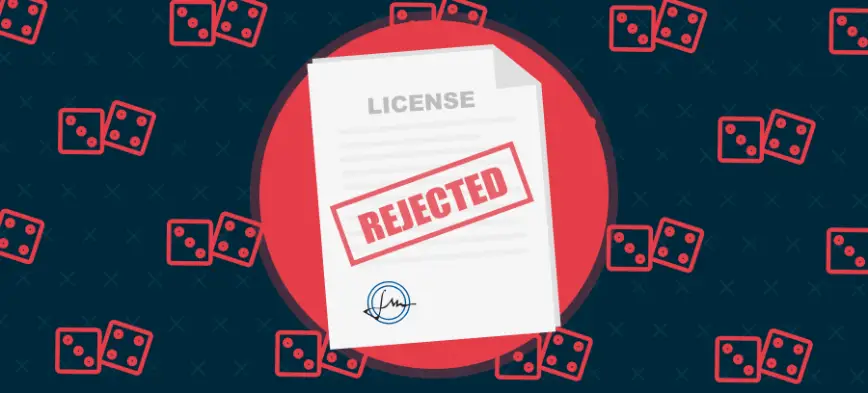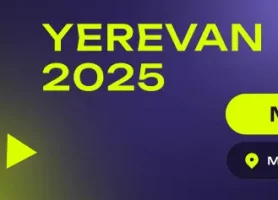Daily News: 23 Brazilian Bookmakers Apply for Licenses, NJ Gaming Revenue Hits $547.8M in July and More…
In Brazil, 23 bookmakers have applied for licenses
Among them are Bet Win, Apollo, Betfair, Big Brazil, Blac Jogos, Eb Intermediacoes, F12, Futuras Apostas, Galera Gaming, Gamewiz, Hiper Bet, HS Brasil, Kaizen Gaming, MMD Tecnologia, HSX Brasil, NVBT Gaming, Oig Gaming, Reals, Seguro Bet, Simulcasting, SPRBTBR, Sorento Bay and Ventmear. Bookmakers are in a hurry to get the necessary permits to begin operations in Brazil on January 1, 2025. According to the law, companies must pay a flat fee of $5.5 million and contribute 12% of their betting revenue to the state budget.
New Jersey Gaming Revenue Reaches $547.8 Million in July 2024

The New Jersey Division of Gaming Enforcement reported that total gaming revenue for July 2024 reached $547.8 million having represented an 8.2% increase from the same period last year.
The increase was driven by gains in the internet gaming and sports betting sectors, despite a decline in traditional casino revenue.
Casino revenue from the state’s nine hotel-casinos was $272.3 million in July 2024, down 6.1%. Casino wins totaled $1.63 billion, down 1.0%.
Online gaming continued to grow, with $195.4 million reported in wins in July 2024, up 25.9%. Internet gaming wins totaled $1.33 billion, up 22.0%. The sector’s steady growth highlights the growing role of online platforms in the state’s gaming industry. Sports betting gross revenues also grew significantly, totaling $80 million in July 2024, up 31.2%. Sports betting revenues totaled $653.1 million, up 30.1%.
Michigan earned $220.9 million in iGaming and sports betting revenue in July

The Michigan Gaming Control Board announced that commercial and tribal iGaming and sports betting operators earned $220.9 million in revenue in July. Gross revenue was up 3.2% from June, with Michigan’s total iGaming revenue for July coming in at $191.44 million.
Additionally, Michigan’s gross sports betting revenue was $29.42 million for the month, with total sports betting volume down 9.6% from June to $250.2 million. Michigan’s combined iGaming and sports betting adjusted gross revenue (AGR) for July 2024 was $189.5 million, with iGaming AGR up 4.7% from June.
State operators contributed $37.1 million in taxes and fees, with $9.11 million coming from the City of Detroit. Last week, the Michigan Gaming Control Board reported that Detroit’s three casinos earned $105.9 million in July, with MGM Casino leading the market share with 48%, and monthly gaming revenue up 2.5% to $51.3 million.
Online betting in Brazil generates $4.4 billion in revenue and spends $1.6 billion on marketing

According to research by Itaú Bank, this is equivalent to 45-75% of their total revenue. By comparison, in the UK, marketing costs account for 20% of revenue, and in the US, around 30%. The Brazilian market is younger than the US, as the national regulatory law was only adopted in December 2023.
At the same time, operators in Brazil spend as much on marketing as US companies did a few years ago – around 48-75% of revenue. Betting operators pay special attention to sponsorship of football clubs which accounts for about $647.5 million of their marketing budgets.
A woman from Washington has filed a class action lawsuit against the developer of Royal Match
In the lawsuit against Dream Games Teknoloji Anonim Şirket, Zhanna Shudde claims that the game is addictive – in her opinion, this violates state gambling laws. Royal Match manipulates players into buying virtual gold coins. However, the game will not allow them to win until all the coins are spent quickly.
According to the lawsuit, the game, advertised as free-to-play, exploits players’ psychological triggers in the same way casinos do to encourage them to overspend. Shudde herself has spent more than $900 on the game this year.
6 of 10 Americans who bet $500 a month are millennials
According to TransUnion’s US Betting Report, millennials continue to have the highest participation rate in online gambling among Americans. They account for 57% of players who spend $500 or more per month. The data is based on an online survey of 3,000 respondents conducted in the spring of 2024.
In addition, 20% of online and 18% of offline bettors noted that their income has increased significantly in the past three months, and 55% and 58% of them have good or excellent credit. Significant revenue growth is the main factor influencing players’ desire to make bets, regardless of income level.
73% of US Gross Gaming Revenue Comes from Unlicensed Operators

According to a new report from analytics platform Yield Sec provided exclusively to the iGaming Business portal, the gross gaming revenue (GGR*) from online gambling in the US reached $39.9 billion in the first half of 2024. At the same time, the share of operators unlicensed in American jurisdictions accounts for 73% of the total GGR.
The gross revenue of legal online gambling platforms in the US is $10.8 billion, while offshore companies have a GGR of $29.1 billion. According to Yield Sec, 892 unlicensed operators targeted US customers in the first half of this year. 651 affiliates were involved in promoting these platforms. Compared to 2022 and 2023, illegal gambling companies will significantly increase their GGR due to their work in the US markets:
- in 2022, offshore operators accounted for $42 billion in gross revenue;
- in 2023, offshore operators accounted for $40.9 billion in gross revenue;
- in the first half of 2024, offshore operators accounted for $29.1 billion in gross revenue.
Thus, for the entire current year, the GGR of unlicensed platforms could reach $60 billion. Yield Sec CEO Ismail Weil noted that this situation is fraught with serious pressure on licensed operators.
“We have pinpointed where this revenue loss is happening, we just need to redirect it back into the pockets of legitimate companies so that the additional revenue is taxed and the industry can ensure safe and responsible online gambling,” Weil emphasized. However, Yield Sec data also shows an increase in the gross revenue of legitimate companies:
- in 2022, licensed operators had a GGR of $12.3 billion;
- in 2023, licensed operators had a GGR of $19.9 billion;
- licensed operators’ GGR was $10.8 billion in H1 2024.
As a result, the legal sector’s gross revenue could surpass the $20 billion mark for the full year of 2024.




